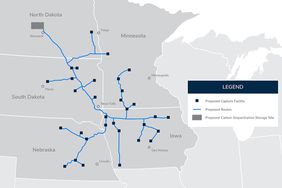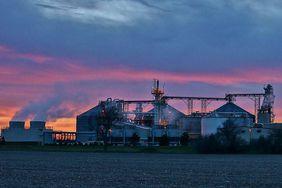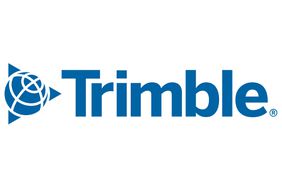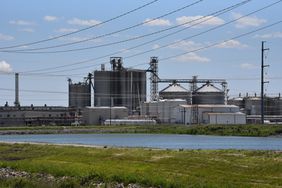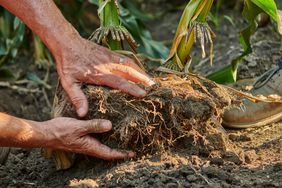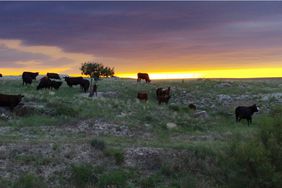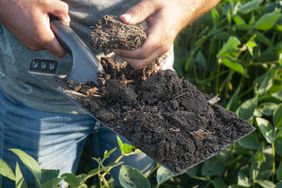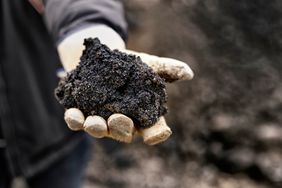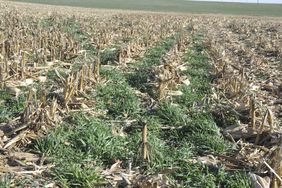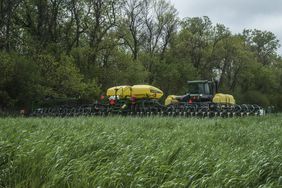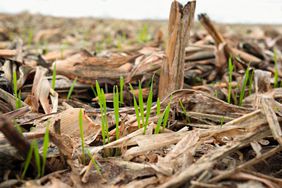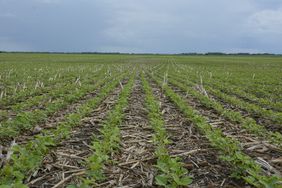:max_bytes(150000):strip_icc()/Little-Corn-Cover-Crop-Radishes-1-2-2000-821cda59fd8f4c58a14de535e2a02580.jpg)
If you're curious about carbon farming, Truterra, the sustainability business of Land O'Lakes, may offer the support you need to take the next step.
- READ MORE: Great carbon expectations
Their new market access program aims to lessen the risk of lost profitability and productivity on the farm by providing incentives and a warranty when transitioning to regenerative ag practices.
Enrolling in the program means farmers can receive $2 per acre to explore first-time practice changes, such as cover crops or minimum tillage, to position fields for future carbon market eligibility.
For example, through Truterra's most recent carbon offer, participating farmers can earn up to $25 per ton of sequestered CO2 upfront for new carbon stored in soils, with a contract designed to help maximize farmers' earning potential and flexibility.
In addition, farmers can participate in the WinField United Advanced Acre Rx prescription plan – a component of which provides a warranty to offset part of the risk of practice change implementation.
:max_bytes(150000):strip_icc()/29245-Mariah-Murphy-2021-2000-6d6c668214ad4ffebe7320e4395f5621.jpg)
"We provide growers an incentive of $2 per acre, and they can put that $2 toward one of the Advanced Acre Rx programs, and they can completely mitigate that risk with an up to $10 an acre warranty," explains Mariah Murphy, Director of Farmer and Retailer Services.
- READ MORE: Navigating the carbon markets
Advanced Acre Rx is an agronomic prescription service that uses data and insights specific to how and where farmers are operating, with the goal of increasing profit potential per acre and lowering per-bushel costs for corn and soybeans.
It's not just about the money. All options in the Advanced Acre Rx program have an agronomic plan that includes products and ag technology recommendations. Leah Anderson, vice president of sales and new markets for WinField United says the goal is to drive optimal long-term solutions for the soil.
"Practice changes for carbon sequestration should be about the long-term sustainability of the farm and should also enhance the farmer's ability to capture potential new revenue opportunities in other areas over time," Anderson says.
To support farmers in making informed decisions, they have prioritized expert agronomic support on the local level. Local retailers are equipped to work with those interested in the market access program.
"Our Land O'Lakes ownership base is really trying to help farmers mitigate the risk of making practice transitions. We know that at times there can be a little fear behind change, but we want to be a supportive resource and help them with our expertise," Murphy says.
A key benefit to enrolling in a program early is for market access and capturing a baseline of data that will be required for any carbon offer. Murphy says the data lift is often a barrier of entry to carbon programs, so they've worked to lessen the burden later by offering support up front.
Making the right decisions for the future is essential.
"As we look at ecosystem markets like the carbon market, it should really be the cherry on top," Murphy says. "Growers should be farming for soil health benefits and the long-term success of their operation."
CONTEXT NETWORK
This article is part of the SF Carbon Connection, a joint carbon market project between Successful Farming magazine and The Context Network, West Des Moines, Iowa. We are developing editorial content regarding existing carbon markets and carbon programs available to farmers. Each month, Successful Farming magazine and Agriculture.com will contain stories that enable farmers to dig deeper into carbon markets. The mid-November issue of Successful Farming magazine will also feature carbon market stories. Future carbon market coverage may also convey information through other media platforms.
